17 results in Exploration of Targeted Anti-tumor Therapy
Latest
Sort by :
- Latest
- Most Viewed
- Most Downloaded
- Most Cited
Open Access
Original Article
Aflatoxin B1-DNA adducts modify the effects of post-operative adjuvant transarterial chemoembolization improving hepatocellular carcinoma prognosis
Liyan Huang ... Xidai Long
Published: August 31, 2023 Explor Target Antitumor Ther. 2023;4:780–792
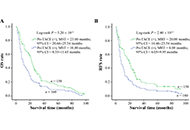
Open Access
Review
Medicinal chemistry advances in targeting class I histone deacetylases
Diaaeldin I. Abdallah ... Patrick T. Gunning
Published: August 31, 2023 Explor Target Antitumor Ther. 2023;4:757–779
This article belongs to the special issue Posttranslational Modifications in Health and Disease
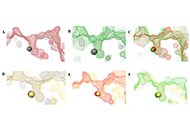
Open Access
Original Article
Retrospective immunophenotypical evaluation of MET, PD-1/PD-L1, and mTOR pathways in primary tumors and pulmonary metastases of renal cell carcinoma: the RIVELATOR study addresses the issue of biomarkers heterogeneity
Melissa Bersanelli ... Luca Ampollini
Published: August 31, 2023 Explor Target Antitumor Ther. 2023;4:743–756
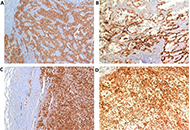
Open Access
Original Article
In silico targeting of colony-stimulating factor-1 receptor: delineating immunotherapy in cancer
Zahra Azhar ... Zohaib Raza
Published: August 31, 2023 Explor Target Antitumor Ther. 2023;4:727–742
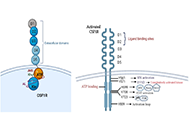
Open Access
Original Article
Clinical and mutational profile of AT-rich interaction domain 1A-mutated cancers
Rosa Falcone ... Gennaro Daniele
Published: August 31, 2023 Explor Target Antitumor Ther. 2023;4:716–726
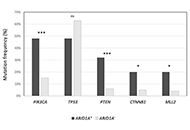
Open Access
Review
Protein ISGylation: a posttranslational modification with implications for malignant neoplasms
Angeles C. Tecalco-Cruz, Jesús Zepeda-Cervantes
Published: August 31, 2023 Explor Target Antitumor Ther. 2023;4:699–715
This article belongs to the special issue Posttranslational Modifications in Health and Disease
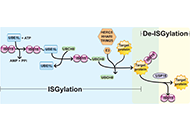
Open Access
Review
Anticancer action of naturally occurring emodin for the controlling of cervical cancer
Priyanka S. Lande ... Leena P. Joge
Published: August 31, 2023 Explor Target Antitumor Ther. 2023;4:690–698
This article belongs to the special issue Plant Extracts as an Infinite Resource for New Anticancer Agents
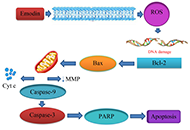
Open Access
Perspective
Artificial intelligence ethics in precision oncology: balancing advancements in technology with patient privacy and autonomy
Bahareh Farasati Far
Published: August 31, 2023 Explor Target Antitumor Ther. 2023;4:685–689
This article belongs to the special issue Artificial Intelligence for Precision Oncology
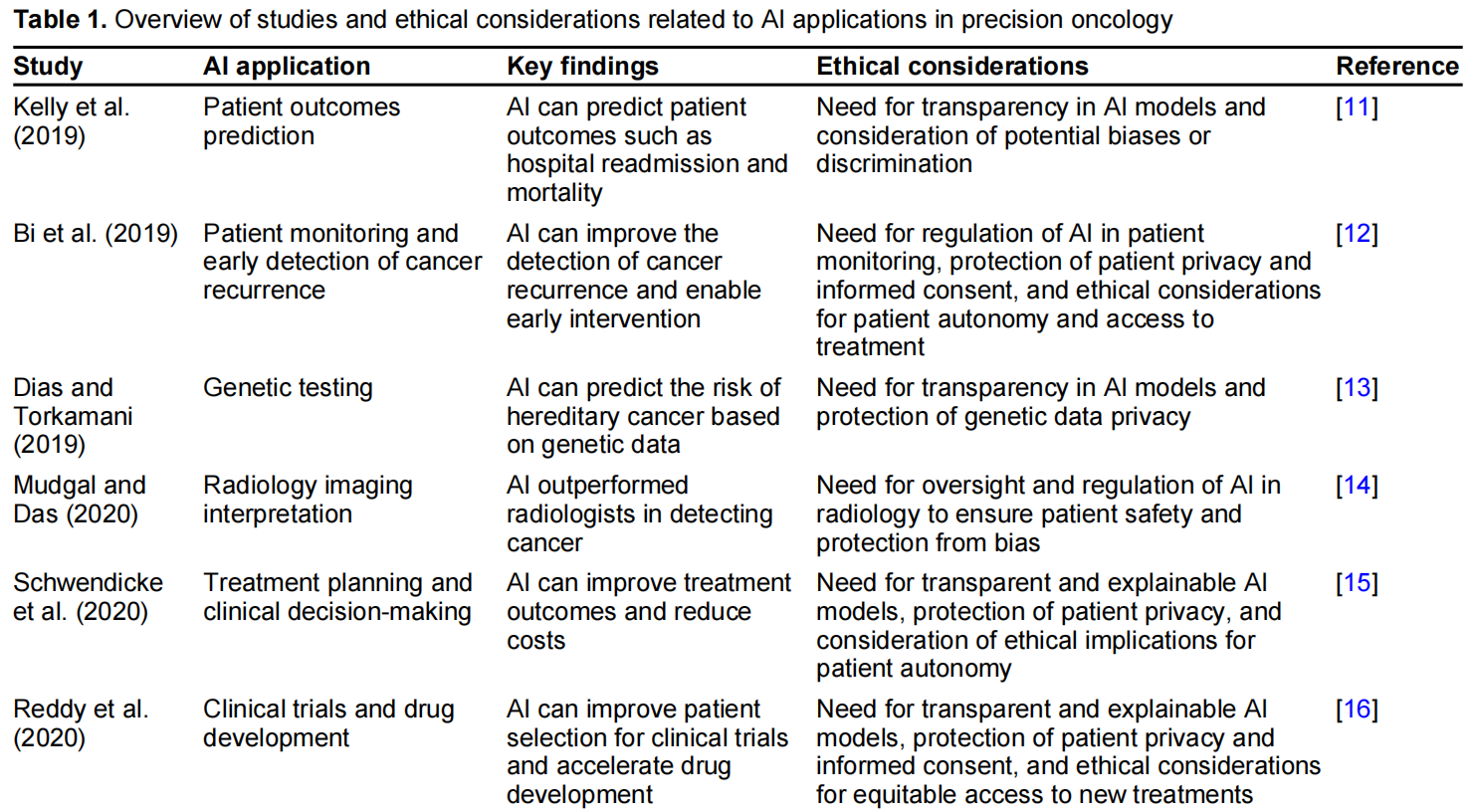
Open Access
Original Article
Deep learning based clinico-radiological model for paediatric brain tumor detection and subtype prediction
Abhishek Mahajan ... Aliasgar Moiyadi
Published: August 30, 2023 Explor Target Antitumor Ther. 2023;4:669–684
This article belongs to the special issue Biomarkers for Personalized and Precise Cancer Diagnosis and Treatment
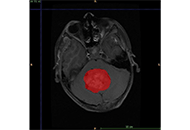
Open Access
Original Article
Deep learning based automated epidermal growth factor receptor and anaplastic lymphoma kinase status prediction of brain metastasis in non-small cell lung cancer
Abhishek Mahajan ... Kumar Prabhash
Published: August 30, 2023 Explor Target Antitumor Ther. 2023;4:657–668
This article belongs to the special issue Biomarkers for Personalized and Precise Cancer Diagnosis and Treatment
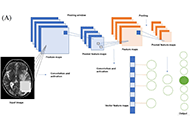
Open Access
Review
Nanomedicine strategies to counteract cancer stemness and chemoresistance
Huayu Liu ... Ran Mo
Published: August 30, 2023 Explor Target Antitumor Ther. 2023;4:630–656
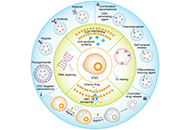
Open Access
Review
Nuclear epidermal growth factor receptor as a therapeutic target
Benjamin Atwell ... Joyce Schroeder
Published: August 30, 2023 Explor Target Antitumor Ther. 2023;4:616–629
This article belongs to the special issue Innovative Strategies to Target Triple-negative Breast Cancer
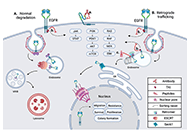
Open Access
Review
Aspirin and the metabolic hallmark of cancer: novel therapeutic opportunities for colorectal cancer
Ashley J. Hoskin ... Emma E. Vincent
Published: August 28, 2023 Explor Target Antitumor Ther. 2023;4:600–615

Open Access
Review
B-cell lymphoma 2 family members and sarcomas: a promising target in a heterogeneous disease
Rui Caetano Oliveira ... José Casanova
Published: August 24, 2023 Explor Target Antitumor Ther. 2023;4:583–599
This article belongs to the special issue The Role of Bcl-2 Family Proteins in Cancer Progression and Their Relevance to Cancer Therapy

Open Access
Review
Emerging role of quantitative imaging (radiomics) and artificial intelligence in precision oncology
Ashish Kumar Jha ... Andre Dekker
Published: August 24, 2023 Explor Target Antitumor Ther. 2023;4:569–582
This article belongs to the special issue Artificial Intelligence for Precision Oncology
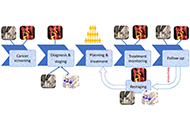
Open Access
Perspective
Potential tactics with certain gut microbiota for the treatment of unresectable hepatocellular carcinoma
Sayuri Yoshikawa ... Satoru Matsuda
Published: August 24, 2023 Explor Target Antitumor Ther. 2023;4:556–568
This article belongs to the special issue Cancer Immunotherapy and Tumor Microenvironment
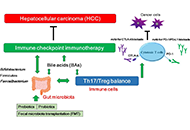
Open Access
Review
Current role of machine learning and radiogenomics in precision neuro-oncology
Teresa Perillo ... Andrea Manto
Published: July 19, 2023 Explor Target Antitumor Ther. 2023;4:545–555
This article belongs to the special issue Artificial Intelligence for Precision Oncology
